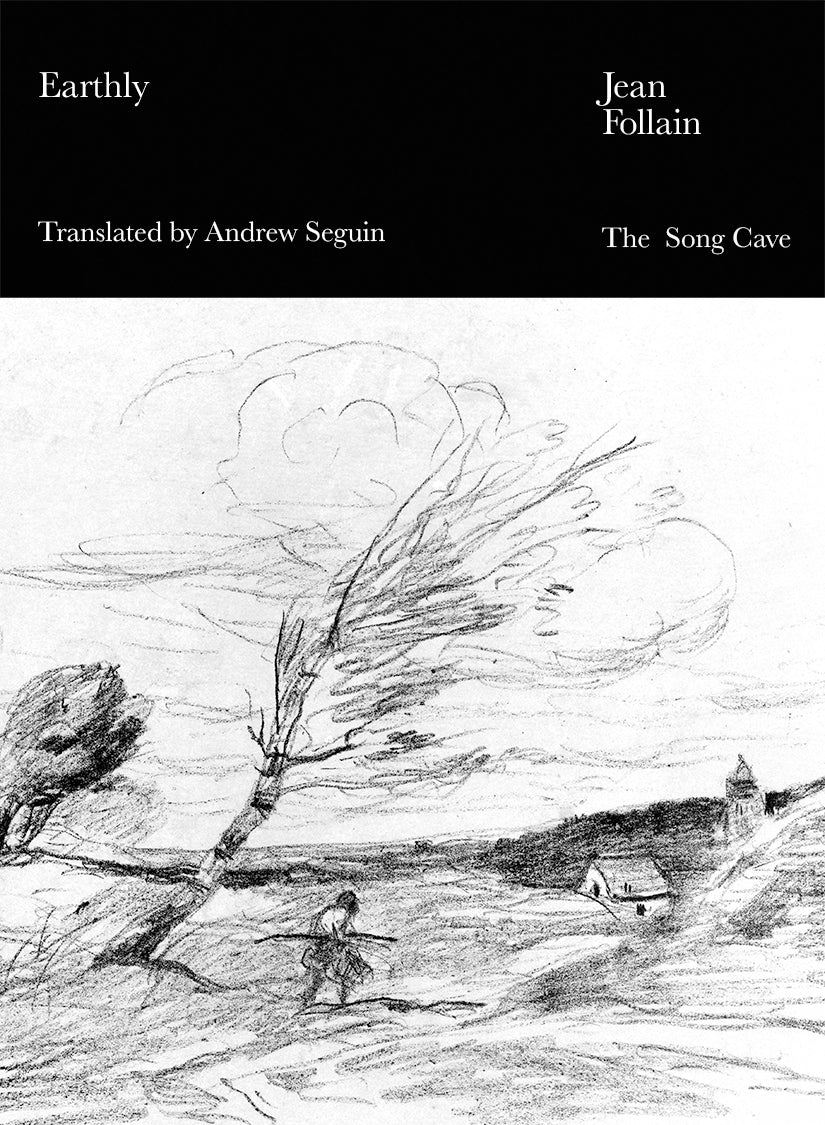Earthly: Selected Poems by Jean Follain, translated by Andrew Seguin
Earthly: Selected Poems by Jean Follain, translated by Andrew Seguin
Couldn't load pickup availability
Highly regarded and little known, the work of French poet Jean Follain evokes a specific consciousness, with intense affection for the world around it, surveying the landscape and its species, yet intimate with the most minute particulars—the umbels of plants, an insect crawling up a boot, the woman sitting on a hearth asking “why beings and things / and not nothing.” Born in 1903 in Canisy, a small town in Normandy, Follain watched the men and animal-powered conveyances of his rural childhood go off to the First World War, most never to return. The embers of that agrarian world were later extinguished by increasing industrialization and the Second World War. “There are almost no more horses,” Follain wrote in 1960. In this new volume, Follain’s poems feel timely, as the ravages of our human-centric worldview upon plants and animals mount toward irreversibility, and as war unfolds where it has so many times before. Arranged chronologically, Earthly: Selected Poems, artfully translated by Andrew Seguin, favors work that has not previously been translated, and includes a number of prose poems from Tout Instant, making this the first volume in English to offer poems from all of Follain’s books.
"...a reading experience that is vivid and expansive. Despite the poet’s retrospective gaze and his knowledge that 'the next century will be worse,' he provides comfort in moments that recognize that 'lovers [still] go by singing.' The result is a lively survey of a writer who feels fresh, even as he speaks to and from history." —Publishers Weekly
The Orange County Review of Books
Jean Follain (1903–1971) studied law at the Faculté de Caen and later became a magistrate. His first book of poems, La Main chaude, was published in 1933, and his first book of prose, Paris, in 1935. Follain published 12 subsequent volumes of poetry as well as several memoirs of his childhood. In 1970, Follain was awarded the highest honor by L’Académie Française, its Grand Prix du Poésie. Associated with a group that included Max Jacob and Pierre Reverdy, Jean Follain was struck by a car and killed just after midnight in Paris in 1971, a brutal irony considering how many of his poems are rutted by farm carts and horse carriages and apple wagons.
Andrew Seguin is the author of The Room in Which I Work and the chapbooks NN and Black Anecdote, and co-translator, with Pierre Mabille, of the first French edition of Josef Albers’s Poems and Drawings. Andrew is a former Fulbright scholar and lives in New York City.

